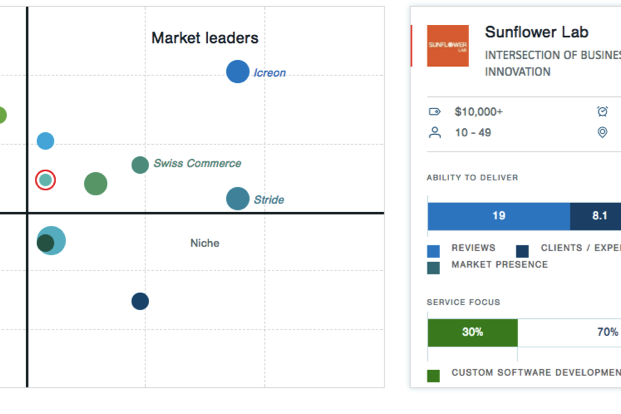Tips how to make strategic business partnerships happen and what you need to do to create an upper edge during negotiations to drive home the best deal.
Startups and SMEs often need help to grow. Complex and highly competitive market scenarios make it difficult for any single small-scale business to survive the marketing onslaught induced by the corporate and other powerful players. Deterrents such as a paucity of funds, limited resources, lack of essential business knowledge and time constraints can prevent small organizations from proliferating and justifying their existence. However, even after considering all the difficulties and stumbling blocks, businesses still have to survive and are required to churn out profits despite all odds to keep the stakeholders happy and interested with further funding activities. How can small businesses achieve this?
A way out is to forge strategic business partnerships with bigger players in the market and create an opportunity to grow your customer base. The main thought behind building an alliance is to create a true synergy between the two entities and make one plus one equal five instead of two. However, gaining new customers is not the main reasons for forming such partnerships. The focus can be to streamline operations, develop a new range of better products having a higher business value in the market, improve upon your services quality, or simply outsource certain tech activities to reduce your operational overheads and enhance your ROIs.
Here’re are some tips to get you going.
Look beyond what’s on the table
Businesses fundamentally operate upon the scarcity-abundance principle. On one side there’s a need to consume a particular product or service in the market, and on the other side there’re people wanting to fulfill that demand. You could be from the “consuming” side and desire reduced buying costs to improve your margins. Or you could be from the “supply” side and push for higher selling costs. For a partnership to form it is imperative that both the sides benefit from the alliance. So you might be required to compromise upon certain aspects to make your partnership happen.
Evaluate yourself in a proper manner
People enter into partnerships when they feel they lack in certain business aspects and need help to grow. Typically, in such scenarios, the party initiating the partnership often feels it doesn’t’ have enough value on its own and is therefore inferior. It plays upon your psyche and hinders you from pushing forward your advantages and KPIs during the negotiations. It’s guaranteed to burn you in the end since the other party is most likely to capitalize upon you lack of aggressiveness. So it’s advised to value your plus points, however small they might be, and be very honest with yourself and the joining party regarding what values you bring to the negotiation table, why you’re interested in the partnership, what you can offer and what you expect to gain. It also does not mean you need to hash out your business plan or change your vision or objectives to “suit” the alliance – You need to be clear about your business journey and have confidence on your products. Don’t devaluate or rule out yourself just because you have less to offer.
Understand your potential partner’s needs
If you need someone, chances are the other person might need you too. The very fact that the other person is ready to listen to you indicates there’s something for him or her to gain from your partnership. So carry out a discreet search and try to find out why the person’s interested. It could help you gain valuable insights for negotiations. You could also use this information to present lucrative proposals to further strengthen your deal. Also, don’t hesitate to ask the person on face why he or she wants to connect with you and what he or she hopes to gain from the partnership.
Have something in common
You can’t form a partnership unless you share something in common. It could be business needs, a vision, talent or almost anything. Business people come from different backgrounds and have their own strengths and weaknesses. Best partnerships are formed when mutual weaknesses are understood and accepted by both the parties and a passion is created to achieve large milestones.
Don’t rush
Haste makes waste. If the meetings are going OK and the other person is responding positively don’t try to save time by hastening the process. People need time to think and evaluate. When pressed, they might resent or feel uncomfortable to go ahead with the deal and decide to quit. Ideally set up follow-up meetings to address next steps to engage with the person. Judicious and thorough planning is the key.
Expect to be uncomfortable
Business negotiations are not a Sunday picnic with the family. The other side is likely to press upon certain negotiation aspects to gain the upper edge and expect you to compromise which you obviously don’t want to do. Therefore, while thrashing out the details on table, expect some push and pull. Many people feel uncomfortable with disagreeing with things. Don’t let that happen to you. Prepare yourself and be clear about where you stand and what aspects you can compromise upon. Draw your bottom line. IT will make you feel more relaxed with negotiating the partnership.
Write down in black and white and commit
As is often the case, most partnerships start positively and later end with a big bang after some months. People feel frustrated and cheated. There could be financial commitments to consider. One of the main reasons why this happens – especially in case of several types of startups – is that potential partners prefer to depend upon mutual understanding about how profit should be split and responsibilities should be shared. There is a tendency to take things for granted and since there’s nothing written down in black-and-white or legally documented, it provides a certain leeway to deviate from the commitments or to expect something more than what was decided or understood. Partnerships require protection. So seal all MOUs and agreements in writing to avoid messy breakups in the future. This can be one of the hardest conversations to have, but by far it is also the most important one.
Sunflower Lab is a custom apps and mobile software development company based in Columbus, Ohio. Voted as “Top Custom Software Development Company of 2017” by Clutch – A top B2B marketplace to find companies who are experts in their domains – Sunflower Lab offers many IT based premium quality services including mobile app development, web development, cloud development, custom software development, graphic design and strategic consulting. Visit the website now to know more about our quality development services and engagement process.
Interested in other strategic partnership topics by Sunflower Lab? We have an entire series of articles specially created for you! Subscribe to our newsletters now.
You might also like
Stay ahead in tech with Sunflower Lab’s curated blogs, sorted by technology type. From AI to Digital Products, explore cutting-edge developments in our insightful, categorized collection. Dive in and stay informed about the ever-evolving digital landscape with Sunflower Lab.





